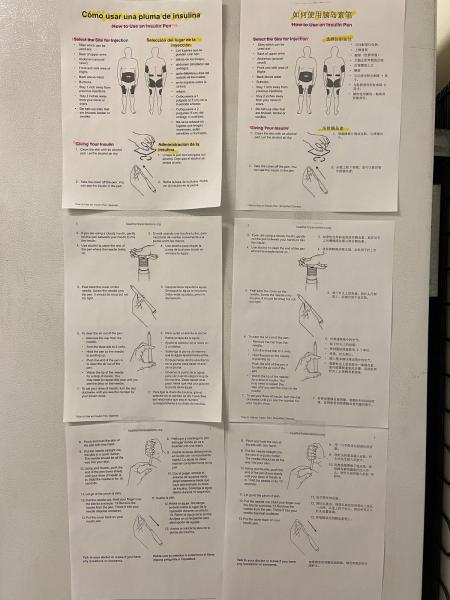Life’s Teachable Moments: Diabetes by Rebecca Merrill
I was sitting at my desk last week taking on a large stack of enrollments and files trying to catch up before the holiday season hits at the end of the month, and out of the corner of my eye, I see John* waving at me from the hallway. John* has been a patient in the Patient Assistance office for a few years and has suffered with diabetes for many years. I wave him on in to my office and wonder if something is going on as his medication was not due for a refill. John proceeds to tell me that his doctor called and told him his lab results and asked him to switch medications, but he is not sure exactly what medications he is supposed to switch. He had already visited the pharmacy in search of the new medication. I nod in agreement and tell him I will check into the matter in his health record. After some digging and a call to his doctor, I discovered John was not supposed to be switching any medication rather scheduling an appointment which I remind him about.
After I helped him with his initial questions, John relays to me about his blood sugar readings. I quickly realize that John really does not have a good understanding about where his blood sugar should be throughout the day. He is eager to learn more, and I continued our conversation learning about John’s current knowledge. I was able to help John locate a blood sugar level chart that I printed for him that showed the danger levels and how the blood sugar level should fluctuate with meals while reiterating the importance of checking his sugar throughout the day. Also, I had some nutritional information about what to do when his sugar was low in my educational materials I have been trying to develop and start at the health center.

As John walked out the door, my mind was unsettled as I took a moment to admire the interaction that just occured. John, a man with diabetes for many years, had just gained important knowledge in the management of his diabetes in his daily life. Strategies that could prevent him from suffering a hypoglycemic episode and when to seek help. But, why did it take many years for John to have someone spend 15 minutes with him taking time to listen to what he knows and providing additional, basic resources? Many reasons and factors come to my mind for the cause of the knowledge gap from the workload of the providers, language barriers, and financial burdens. Similar stories have been ever present in my role at the health centers over these first four months.
John’s story resonated with me as a future health care provider and serves as a reminder for me to remain cognizant of different factors impacting each patient I serve. As a student who studied and researched health and medicine throughout college, I do not find the medical lingo and illnesses foreign as I have become accustomed to the norms and terms. I constantly try to remind myself and not taken aback when someone asks me, “Is a blood sugar of 300 high?” or “I only take my blood pressure medication when I start feeling funny." Medical professionals including myself cannot assume knowledge on our patients and must make every effort to best educate our patients. Most importantly, I want to remain that friendly face and open door of health care creating an environment where my patient’s can ask questions and feel heard.
*Name Changed for Privacy

Body image description: Blood sugar goal chart for those living with diabetes. Before Meals 80-130, 1-2 Hours After 180, and A1C should remain 7%. Source: Cornerstones4care.com
Final image description: Diabetic education materials showing how to properly administer insulin with an insulin pen and needle in English, Spanish, and Chinese languages.